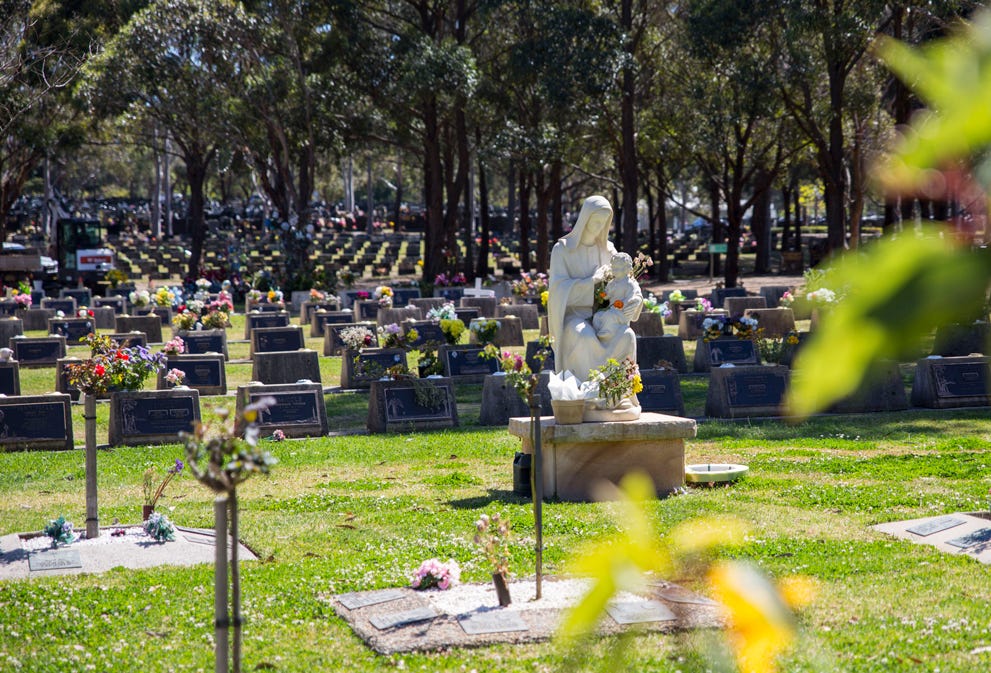Australian state ministers are dropping their bid to force a trust responsible for managing Catholic cemeteries to merge into a single government provider.
The decision is the latest development in a years-long dispute between the Catholic Metropolitan Cemeteries Trust in Sydney and government of the Australian state of New South Wales.

The Sydney Morning Herald reported Wednesday that the New South Wales government, currently led by the Labour Party, is dropping the previous coalition government’s bid to forcibly absorb the management of Catholic cemeteries in the state as part of a wider plan to combine five independent cemetery trusts into one government run body in 2021.
NSW premier Chris Minns has instead said publicly that he favors a two-provider system, with the Catholic trust, CMCT, operating independently and other local operators combined into a single government body.
The previous government claimed that a five-into-one plan, which would include CMCT, was necessary because of a critical shortage of new cemetery lands, and a funding shortfall for existing cemetery maintenance.
But CMCT argued that it had already acquired land for two additional cemetery sites and had a fully-funded perpetual care account which could have offset for nearly a decade a drop in state funding.
“It would seem strange to me to wind up an organization that has good finances, has made provisions for the future and seems to be working well,” Timms said of CMCT this week, while making clear he had not formally approved the proposed two-provider plan.
“They were the only operator that didn’t have debt liabilities in the hundreds of millions of dollars.”
When he led the opposition in 2021, Minns had described the prior government’s plans to forcibly takeover CMCT as “a bad decision.”
Speaking in 2021, Archbishop Anthony Fisher, OP, of the Sydney archdiocese called the original proposal for the government to forcibly take over Catholic cemeteries an act of “brazen disregard for people of faith” and warned in a series of public statements that the government plan would jeopardize the freedom of the Church to care for Catholic graves, and leave cemetery sites vulnerable to sale, relocation, and development by government ministers.
Following a public outcry, the plan was shelved for further consultation in 2021, but the New South Wales government has continued to demand CMCT submit to an audit by the state auditor-general, in preparation for the merger — arguing that the government needed to ensure CMCT’s funds were “used for their proper purpose.”
According to legal advice from the NSW treasury department, the state auditor-general has “statutory obligations to complete a financial audit of the CMCT’s financial statements as a controlled entity of the state and to conduct a performance audit of the entity in compliance with a minister’s request.”
The trust has rejected that rationale, arguing that it is not a “controlled entity of the state” but an independent and legally registered charity, and that to submit to state auditor-general oversight would imperil its legal standing as a charity, making it liable for significant levels of taxation.
The audit demands are expected to be dropped when the two-provider model is given the formal go-ahead.
The news that the NSW government will not attempt to forcibly take control of Catholic cemeteries comes amid a wider national conversation about government appropriation of the assets of successful Catholic apostolates.
In the Australian Capital Territory last week, the government announced legislation to force the takeover of the Catholic Calvary Public Hospital in the Canberra suburb of Bruce.
Under the terms of the plan, the local government will force the compulsory acquisition of the hospital and its assets, folding them into the state-run health network, Canberra Health Services. Staff at Calvary, the government announced, will become public employees.
The ACT government and the hospital’s Catholic owners, the Little Company of Mary Health Care, had been in talks to sell the hospital to the government in 2010 for a price of AU$77 million, but those talks broke down when the LCMHC said any sale would be approved by the Vatican as an extraordinary act of administration, a process which could take years.
Canberra’s Archbishop Christopher Prowse called the ACT plan a “worrying precedent” that showed the government “can simply decide to mount a take-over of any enterprise they like without any justification.”
The Calvary hospital takeover has also been forcibly denounced by Sydney’s Archbishop Fisher, who on Tuesday called the move an “extreme land-and-assets grab” in a bid to pursue an “anti-life agenda.”
“The ACT Government want to force Calvary Hospital to provide abortions now, and euthanasia and assisted suicide in the future,” the archbishop said. “It’s also not just an issue for the ACT. If the ACT Government is successful in this radical action, it could serve as a blueprint for other governments as well.”
